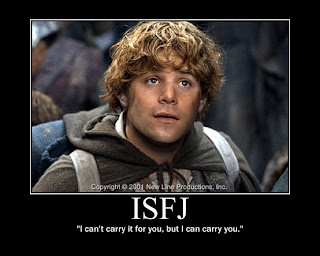I apologize in advance for the length of this blog post but
I have a lot of things to talk about for each session I attended this past
weekend!
Mid-Year Institute
Resume Session
I learned a lot in this session. As always when you’re in a
resume workshop, you talk a lot about wording in your resume but the presenter
also covered something I’ve never had the opportunity to work on in a workshop:
using descriptive language in conversation. With the career fair coming up
soon, I thought it was really interesting and he had us talk to our peers about
our leadership using some words most people reserve for their written resumes.
I’ve never thought about needing to be able to smoothly incorporate these
buzzwords in talking about myself before, nor really had the experience of
talking about myself with these terms outside of an actual interview situation
so I appreciate the practice. One thing that came up in the Q&A is where it
is appropriate to place our experience as peer mentors. We’re not directly
getting paid but it’s a lot more than being in a club. My question for everyone
is, where do you think Hixson Peer Mentor should be listed? Job or involvement?
Social Media Session
I thought this was a really informative session. Obviously
we’ll be using social media in the fall for Social Media Week but the women
presenting really gave a lot of insight into what platforms we could be using
as a communication tool within the classroom. I got a lot of tips to improve my
use of social media with my students. I really liked their suggestion of asking
the students before class starts or at the beginning what platforms they use to
find a good middle ground. With that we could create a Facebook group or start
a Twitter account separate from our personal accounts for classroom related
information and reminders. They also gave the really great suggestion that I
hope to use in the fall of using Google Calendars. It’s a great place to
organize all the dates and its able to be shared with everyone since it’s the
one platform every student will have through ISU. Another great thing they
talked about was their use of Google Drive. Not only for the collaboration
aspect but also an accountability approach. If the students are required to
write assignments in Drive, they’ll always have it and it can elevate excuses
for why they don’t have a particular assignment to turn in. No more “I forgot
it” or “My computer crashed”. Either they have it done or they don’t. The only
problem I can see is the fact that our classrooms are not lab-based but it
could be useful.
ISLE
Group Dynamics Session
I went to this session hoping to get a lot out of it, which
I did. My section had a little bit of a problem with dynamics last year and I
thought it would be a great thing to get some insight. One of the things the
presenters stressed was self-awareness, knowing how you communicate and what
kinds of things could prevent you from communicating effectively. I think this
fit perfectly with our lesson this week and getting to know our MBTI types and
this class in general! Another thing they brought up was the idea about setting
expectations. When the session started, ground rules and expectations were laid
out and I think this is a great idea considering my experience. My co-leader
and I did not set many expectations at the beginning of the semester and only
did so when we ran into problems. I loved the more psychological and
sociological approach they took to discussing it. I’m more of the type of
person that finds motivation for actions more interesting then straight up
being told what to do to control actions.
Emotional Intelligence Session
I was drawn to this session because in my management courses
we’ve talked a lot about EI and the managerial implications of it but I wanted
more of the student level approach. You wouldn’t think that EI in the workplace
and in a peer group would be different but they really are and should be. Even
within different types of peer groups, EI needs to be approached completely
different. Emotional Intelligence
is basically the ability to assess and supervise your emotions and thoughts.
“Leaving it at the door” is a great example of it. If you walk into a room and
let your crappy day affect you, the people in that room are going to pick up on
that feeling as well. Although the presenter didn’t talk a lot about techniques
to improve your EI, she did present some interesting things about why EI is
important when dealing with people from our generation (Gen Y). For the most
part we are highly computer literate which can also lead to having less developed
interpersonal skills from hiding behind a screen, we are highly skeptical and
want validation and proof of things before believing or supporting anything, and
we negotiate everything and aren’t afraid to challenge others to get the information
we want. These are things we’ll need to keep in mind when communicating and
dealing with not only our students but also our peers outside of the classroom.
Knowing what we are dealing with can help us regulate and keep composure along
with knowing the appropriate communication style to approach any situation. This
was really interesting to me because, as I mentioned before, I’m a motivational
psychology junkie.
I know that was a lot to read and if you did it, I’m so
proud of you and you deserve a hug! I can’t wait to read everyone else’s
experiences and lessons they learned at MYI and ISLE!
